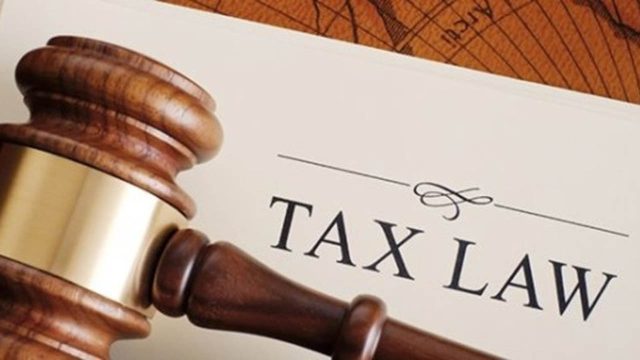There is also a risk that tax enforcement may become politicised if revenue authorities are not granted institutional independence. The appointment process for NRS and State IRS leaders lacks insulation from political interference. Strong institutions—not just strong laws—are needed for reform to endure.
Nevertheless, the reforms hold transformative potential. The legal grounding for taxing virtual assets, digital transactions, and non-resident service providers brings Nigeria in line with global shifts. Environmental levies and the 5 per cent fossil fuel surcharge (Tax Act, Section 159) lay the foundation for green taxation and climate finance. The requirement for firms to file tax incentive returns (Tax Admin Act, Section 27) could expose abuse and improve transparency.
Yet, the effectiveness of incentives remains uncertain. While companies must now file tax incentive returns, there is no obligation for government to publicly disclose the cost-benefit outcomes of these waivers. Without impact evaluation, incentives may remain opaque tools for rent-seeking rather than catalysts for growth.
Globally, countries like Rwanda, South Africa, Kenya, and Ghana have made commendable strides in smart taxation. But effective taxation must go beyond collection—it must shape budgeting, planning, and delivery. Public financial management reforms must therefore link tax revenue directly to the national and subnational budget cycles. Citizens should be able to trace how their taxes fund public goods—schools, hospitals, roads.
Budget transparency portals, tax-tagged project monitoring, and community scorecards can help bridge the trust deficit between taxpayers and governments. Nigeria should institutionalise participatory budgeting mechanisms where communities have visibility and say over how local tax revenues are allocated. Nigeria must not only catch up, but leap ahead. With the right leadership, we can pioneer tax innovation by integrating AI, blockchain, and geospatial analytics into compliance systems.
The reforms also raise important questions about fiscal federalism. Beyond structural harmonisation, the deeper issue lies in Nigeria’s unresolved fiscal arrangements. The tension between centralised tax administration and state-level autonomy—especially over VAT and mineral revenue—requires constitutional clarity, not just administrative alignment. Without resolving these core tensions, the Joint Revenue Board may struggle to build consensus across Nigeria’s federating units.
Additionally, the 2025 laws position Nigeria to better align with the OECD’s Base Erosion and Profit Shifting (BEPS) action plans. As digital taxation and global minimum tax rules evolve, Nigeria must actively participate in multilateral fora to ensure that African interests are represented in the design of fairer international tax rules.
To unlock Nigeria’s vast informal and youth-led economic sector, reforms must be paired with tailored instruments: simplified presumptive tax regimes, mobile-based registration, and incentives for digital bookkeeping. A youth tax transition scheme—offering tax holidays in exchange for digital onboarding—could be a game-changer.
While the Tax Appeal Tribunal and Ombudsman offer structured redress, a clogged and underfunded judiciary still hampers timely resolution of tax disputes. Tax reforms must therefore be accompanied by judicial capacity-building—especially at state levels—to deliver consistent, fast, and fair decisions.
The consolidation of tax powers under the NRS, while efficient on paper, risks recentralising fiscal authority in a way that disempowers states. A careful balance must be struck between national uniformity and local innovation—especially in states with unique economic profiles or reform momentum.
Nigeria’s thriving fintech ecosystem offers untapped potential as a compliance partner. Government can co-create APIs and low-code solutions with startups to onboard informal traders, track VAT in retail, and automate tax reporting for gig workers.
Nigeria’s introduction of a fossil fuel surcharge is commendable. Equally vital is leveraging tax reforms as a tool for anti-corruption. The integration of taxpayer identification with financial data, combined with AI-enabled audit tools, offers a new frontier for detecting procurement fraud, illicit enrichment, and off-budget spending. Tax transparency should also extend to public officeholders—requiring annual asset declarations to align with tax records. By linking tax with governance integrity, Nigeria can strike at the heart of corruption. But true green taxation will require a broader policy framework—carbon pricing, environmental levies on extractive industries, and incentives for climate-smart agriculture. A national green fund, capitalised by eco-taxes, could accelerate climate resilience and low-carbon transition.
Beyond legal reform, citizens need practical tools. Among the groups most affected by taxation are Nigeria’s senior citizens, persons with disabilities (PWDs), and other vulnerable populations. Yet, the new laws do not contain specific tax reliefs, exemptions, or targeted incentives for these groups. Tax justice must be sensitive to age, ability, and marginalisation. For instance, offering PIT exemptions to retirees with limited pensions, or VAT exemptions for assistive devices and disability-related services, can align the tax code with social equity. Government should also consider tax support programs—such as mobile filing assistance or community tax advisors—for PWDs and the elderly. A national tax calculator app, simplified rate tables, and community-based tax education will demystify compliance. Without clarity, even well-meaning reforms risk alienating the very citizens they intend to support.
The 2025 tax reform laws represent not just new rules, but a new opportunity. An opportunity to make taxation an instrument of justice and development. An opportunity to wean Nigeria off oil dependence. An opportunity to restore the dignity of the taxpayer. Whether these laws deliver on their promise will depend on the courage of leaders, the integrity of institutions, and the commitment of citizens. Nigeria has written the laws. Now it must write the legacy.
Concluded.
Prof. Uba is a development economist, fiscal governance expert. He can be reached via:+234 803 309 5266; [email protected]







